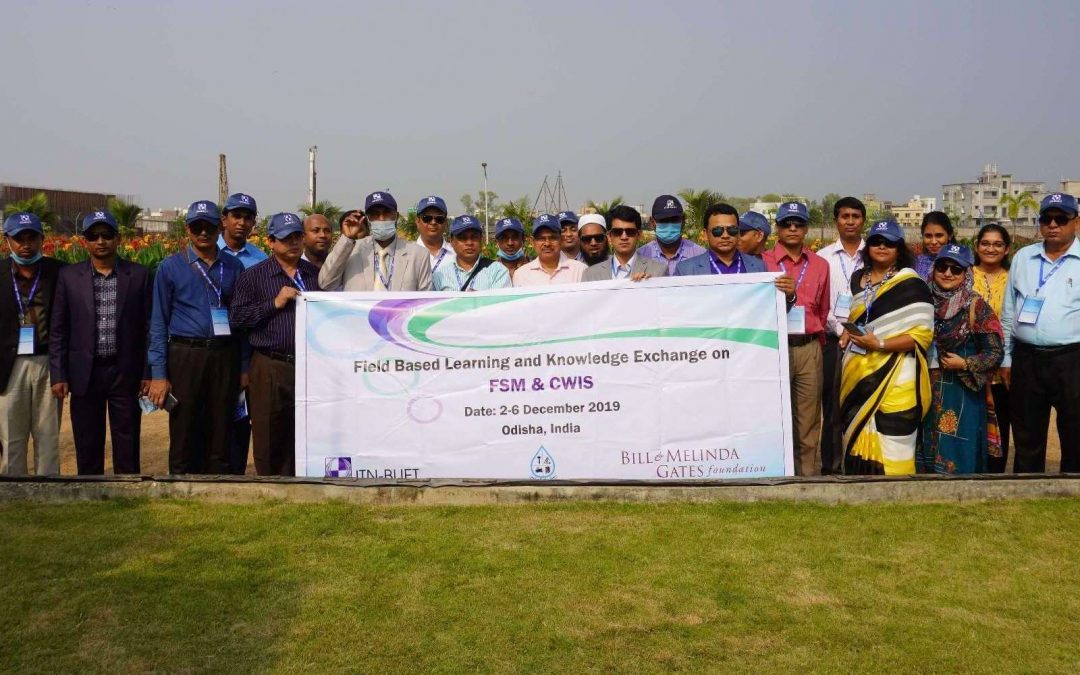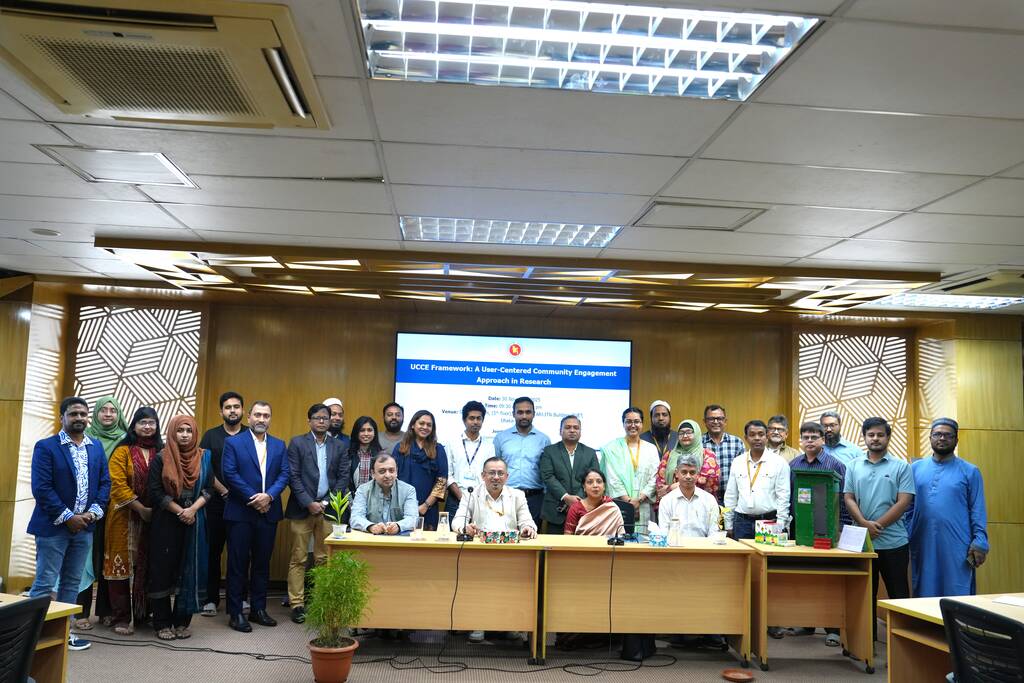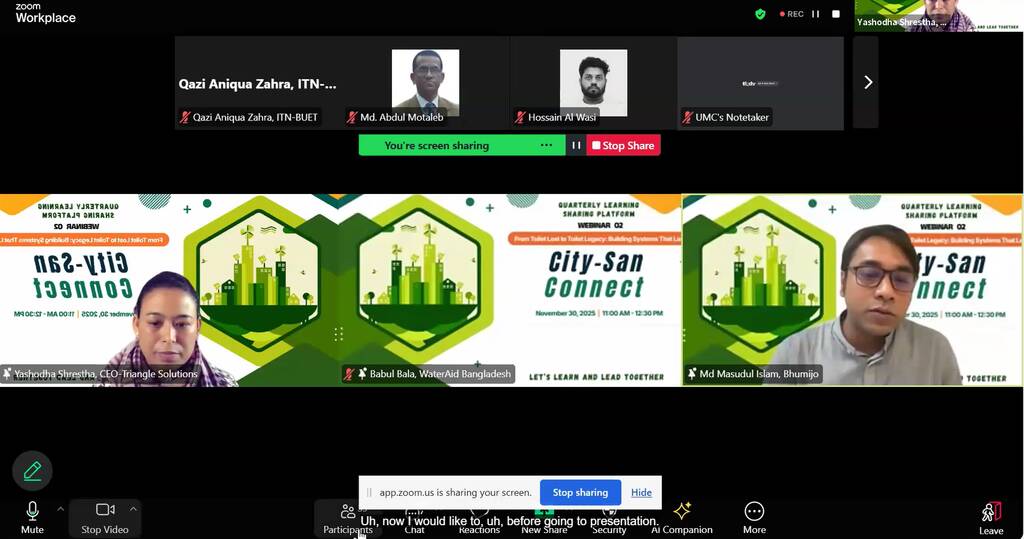In line with the initiatives like the Swachh Bharat Mission, Odisha, a state of India has become one of the pioneers to successfully run the FSM service chain throughout the state. To learn about the technical and management aspects of fecal sludge management a team of 24 delegates from Bangladesh visited Odisha during 2-6 December 2019. The team included officials from DPHE, paurashavas under 23 Towns project of DPHE and ITN-BUET. The visit is facilitated by Orissa Water Supply and Sewerage Board (OWSSB) through its technical partner Earnest & Young (E&Y). The event was supported by the Bill and Melinda Gates Foundation and jointly organized by DPHE and ITN-BUET from Bangladesh.
The context of India regarding sanitation is almost similar to Bangladesh and the Government’s approach for sanitation and FSM initiative in parts of India motivated the participants to implement the learnings from the visit in their Paurashavas. The aim of the exposure visit was to advance the knowledge and expertise of them for successful implementation of FSM programs utilizing lessons learned from best practices.
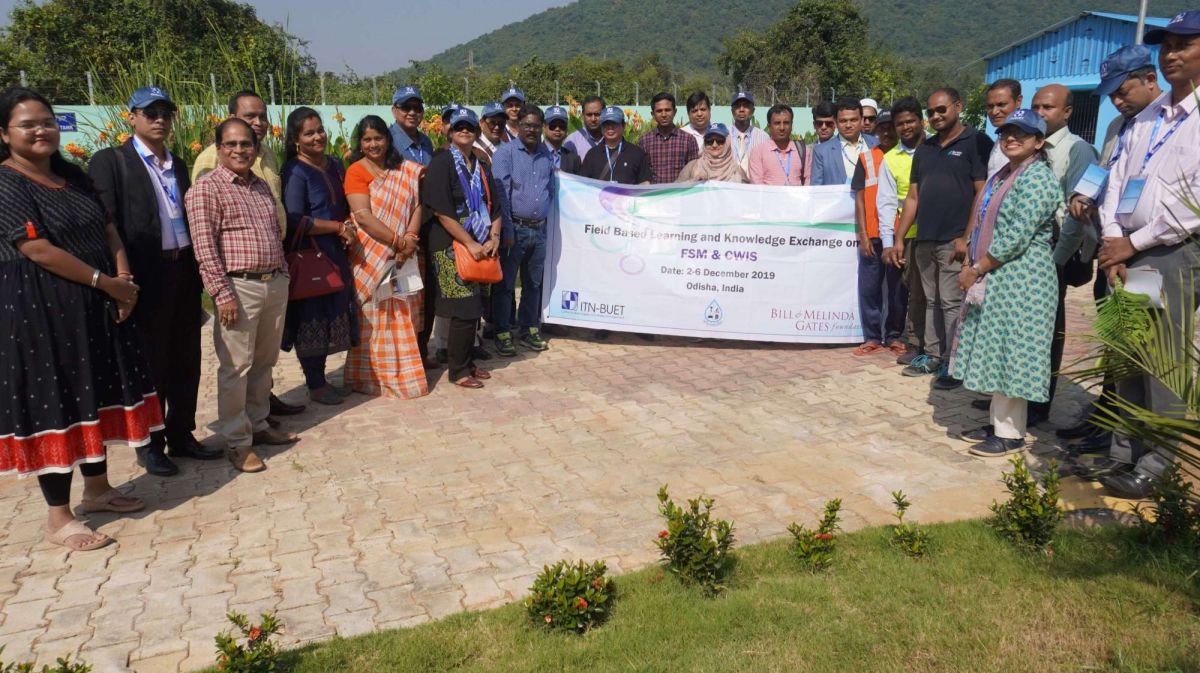
The team visited a number of treatment plants such as Puri Septage and sludge Co-Treatment Plant, Bhubaneswar Faecal Sludge and Septage Treatment Plant and Dhenkanal Fecal Sludge Treatment Plant. The first meeting was held with the Operation and Management group of Puri co-treatment plant at Puri, Bhubaneswar, Odisha after visiting Puri Co-Treatment plant. A meeting with the OWSSB was organized on the second day to understand how the state became one of the pioneers to provide city wide FSSM services in Odisha. Md. Raushan Alam, Executive Engineer, DPHE shared the objective of the visit with the Member Secretary and the project director of OWSSB. The meeting was followed by a field visit to the Bhubaneswar Faecal Sludge and Septage Treatment Plant.
The Faecal Sludge Treatment Plant (FSTP) Dhenkanal is the Odisha`s first FSTP to serve the purpose of completing the sanitation value chain. The Bangladesh delegation met the District Councilor and the Ex-Chairman of Dhenkanal Municipality and shared their experience of the plant visit. Practical Action facilitated the plant visit in Dhenkanal.
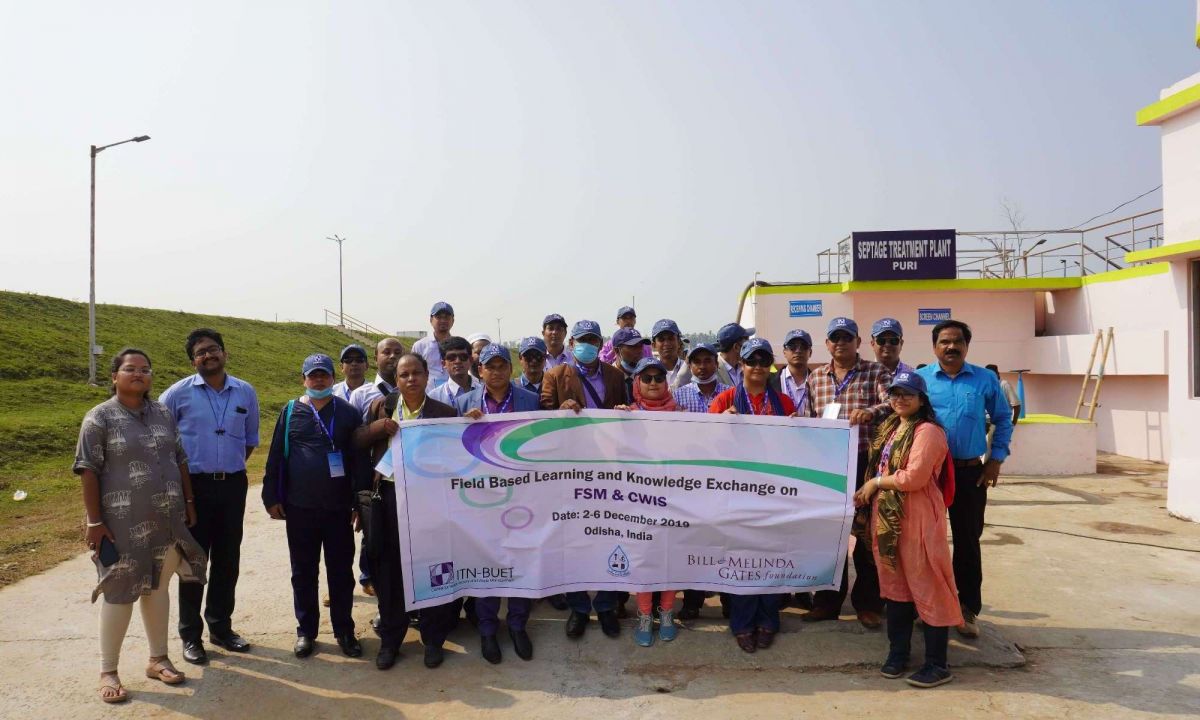
The visits in Puri, Bhubaneswar and Dhenkanal, helped the participants to learn about treatment technology, financial and administrative management, governance mechanism, operation and maintenance of the treatment plants, social inclusion and awareness raising. The meeting with OWSSB was particularly helpful to understand how the government engages with different stakeholders to ensure citywide FSM service
The participants were motivated by the strong political will of the government to achieve SDG 6.2 by 2030. The exposure visit created a platform for the participants both from Bangladesh and India to learn about the good practices and a scope for networking with sector professionals within and outside country. The representatives of the Paurashavas and relevant DPHE officials have been oriented on the concept of FSM and CWIS earlier under the capacity building program of ITN-BUET and DPHE.
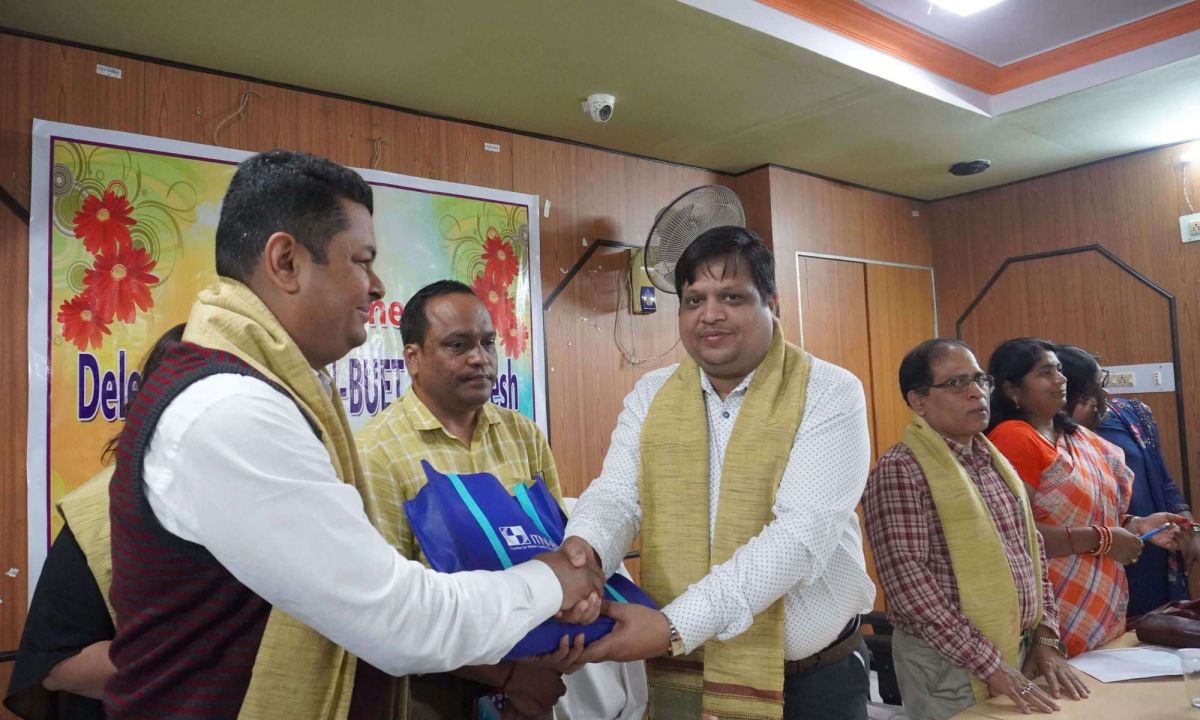
Officials from DPHE and 10 Paurashavas under 23 Towns project participated in the exposure visit. The Paurashavas were: Manirampur, Kanaighat, Chatkhil, Dhamrai, Shaistaganj, Nabinagar, Jagannathpur, Benapole, Basurhat and Godagari.


